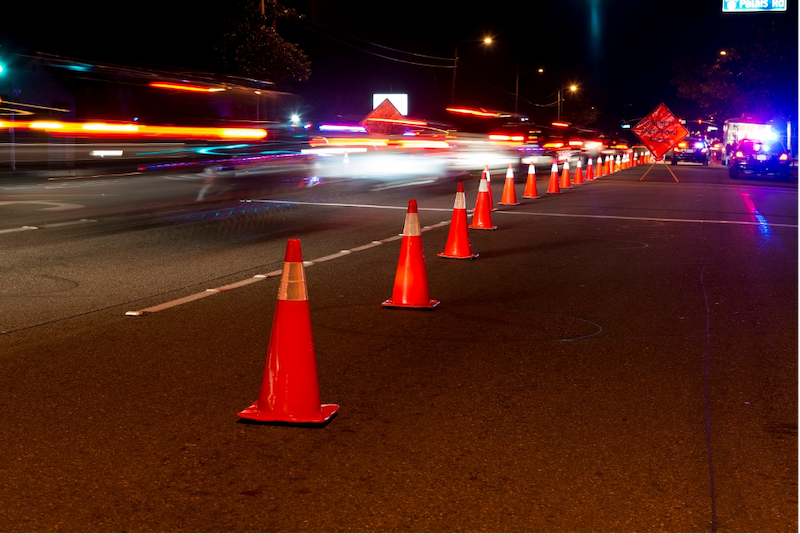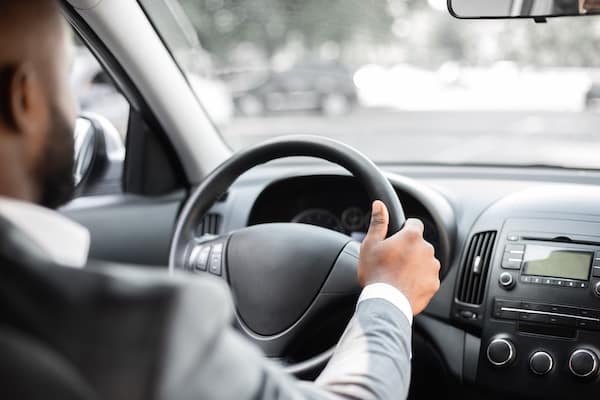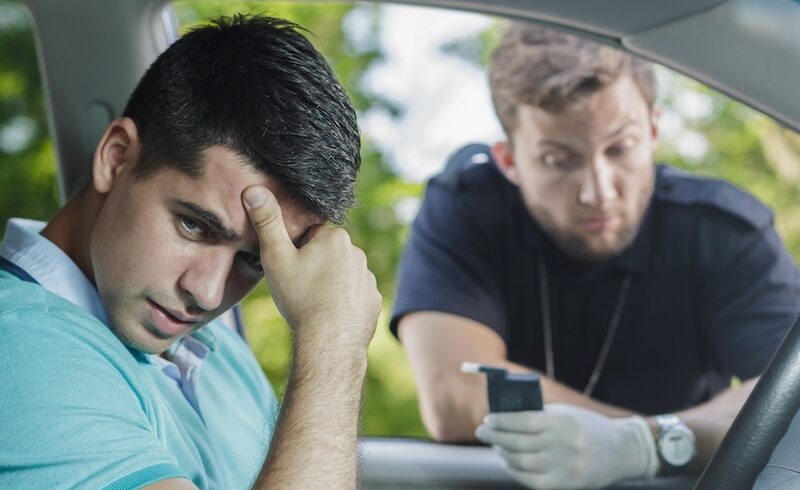
There was over 20,000 DUI arrests in Illinois last year. While it’s a somewhat common offense, the big question surrounding Illinois DUIs is whether DUI checkpoints are legal in the state.
Are you driving in Illinois and worried about running into a DUI checkpoint? You’re not alone, as many other people share your concern. You might know that law enforcement can pull drivers over to look for signs of intoxication, but are DUI checkpoints legal? If so, what should you do if you get stopped at one, and you have been driving under the influence?
What is a DUI Checkpoint?
We know. DUI checkpoints can be a real bummer when trying to make it home after a night out, but they might save your life (or someone else’s). Just what are they, and what purpose do they serve?
DUI checkpoints are police locations set up to catch drivers who have been drinking and driving. In Illinois, DUI checks are run on some nights and weekends to keep our roads safer.
It may seem like a nuisance, but DUI checkpoints don’t only save lives by keeping drunk drivers off the road; they can also act as a deterrent for people thinking about driving drunk in the first place.
Are DUI Checkpoints Legal in Illinois?
Yes, they are. While DUI checkpoints aren’t legal in 12 states, they are currently legal in Illinois. That doesn’t mean everybody is a fan of them (even lawmakers). DUI checkpoints have been a source of contention ever since their introduction.
Despite criticism against DUI checkpoints in states like Michigan, the United States Supreme Court deemed DUI checkpoints legal and constitutional in 1990, ruling that they do not violate the Constitution’s Fourth Amendment. You can check out the iconic case Michigan Dept. of State Police v. Sitz to learn more about the ruling.
What’s most important to know is that Illinois’ DUI checkpoint program was implemented after this ruling came down. This means that DUI checkpoints are legal in Illinois and provide law enforcement officers with an additional avenue of keeping DUI offenses to a minimum, making roads safer for all drivers.
What to Do at a DUI Checkpoint
While DUI checkpoints are put up to prevent drunk driving, it’s important to know your rights if you get stopped at one. First, let’s talk about what you’re required to do. As an Illinois driver, you must provide police officers with your license, registration, and insurance information if you are pulled over.
Beyond those responsibilities, you should also be mindful of your rights as a driver:
- You have the right to remain silent to any questions regarding alcohol consumption
- An officer cannot arrest you without probable cause (or reasonable suspicion of intoxication) due to Fourth Amendment rights preventing warrantless searches
This means that an officer has to see you behaving erratically or driving recklessly to arrest you for a DUI, even at a checkpoint. DUI checkpoints can be intimidating, but knowing your rights will prepare you for successful interactions with law enforcement.
How Serious is a DUI in Illinois?
What happens if you get arrested at a DUI checkpoint in Illinois? How serious is the offense? In Illinois, a DUI is classified as a Class A misdemeanor. This means the charge may result in five days of mandatory imprisonment or 240 hours of community service. It’s also likely that your license will be suspended.
Subsequent DUI convictions within twenty years may result in a five-year revocation of your driving privileges and the suspension of your vehicle registration. When faced with such serious consequences, it’s important to obey DUI laws and be aware of the consequences that could follow if you break them.
Speak With a DUI Lawyer
Have you been stopped at a DUI checkpoint or charged with a DUI? John M. Quinn & Associates has been at the forefront of helping Illinois drivers get back on the road with a legal license for over 23 years. Our team has established an efficient process in getting licenses reinstated and clearing holds.
Our firm’s high success rate speaks volumes about our experience and ability to handle these cases with sensitivity and skill. If you’re ready to speak with a lawyer to help clear your hold or reinstate your license, you can trust John M. Quinn & Associates.
Get in touch now to explore your legal options with our team.


